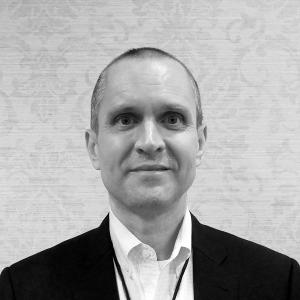Kenneth Walker

Collecting Stories at the National Working Waterfronts and Waterways Symposium 2018
Collecting Stories at the National Working Waterfronts and Waterways Symposium 2018 is a project of Maine Sea Grant, College of the Atlantic, the Island Institute, and the National Working Waterfront Network.
National Capital Contracting
Kenneth Walker is a seasoned professional affiliated with NOAA's Office for Coastal Management, where he plays a pivotal role in addressing the complexities of coastal conservation and utilization. His career trajectory has been marked by a deep commitment to the stewardship of coastal resources, reflecting a personal connection to the working waterfront that has been both a driving force and a source of insight in his professional endeavors. Walker's expertise is grounded in a rich tapestry of experiences that span policy development, community engagement, and the promotion of sustainable practices along America's coastlines. His involvement with the National Working Waterfront Network stands as a testament to his dedication to preserving the economic, cultural, and ecological vitality of these areas. Through his work, Walker has become a respected figure in the coastal management community, recognized for his ability to foster collaboration and his unwavering focus on enhancing the resilience of waterfronts and waterways against the backdrop of environmental challenges and shifting economic landscapes.
Scope and Content Note
The interview with Kenneth Walker, conducted by Corina Gribble and Kaitlyn Clark from the College of the Atlantic, offers an in-depth exploration of the multifaceted issues surrounding working waterfronts and waterways. The conversation delves into the significance of these areas, not only as economic hubs but also as cultural and ecological assets that require thoughtful management and protection. Walker discusses the myriad challenges that waterfront communities face, including the need for resilience planning in the face of environmental uncertainties and the importance of maintaining the functionality and accessibility of these spaces. He highlights the resources and support provided by the National Working Waterfront Network, emphasizing the value of early coordination and the exchange of knowledge through peer-to-peer learning. The interview also touches on Walker's personal connection to the working waterfront, which has informed his engagement with the National Working Waterfront Network and his broader professional pursuits. Furthermore, Walker sheds light on the concept of resilience, as defined by NOAA, and the necessity of integrating resilience planning into local governance processes. He underscores the diversity of perspectives on resilience, acknowledging the need to listen to stories from individuals at all levels to fully grasp its implications in different contexts. The interview encapsulates Walker's perspective on the ongoing priority of coastal resilience for NOAA and the critical role of community-driven efforts in safeguarding the future of America's working waterfronts and waterways.
Please Note: The oral histories in this collection are protected by copyright and have been created for educational, research and personal use as described by the Fair Use Doctrine in the U.S. Copyright law. Please reach out Voices@noaa.gov to let us know how these interviews are being used in your research, project, exhibit, etc. The Voices staff can help provide other useful resources related to your inquiry.
The NOAA mission is to understand and predict changes in climate, weather, oceans, and coasts, to share that knowledge and information with others, and to conserve and manage coastal and marine ecosystems and resources. The Voices Oral History Archives offers public access to a wide range of accounts, including historical materials that are products of their particular times, and may contain offensive language or negative stereotypes.
Voices Oral History Archives does not verify the accuracy of materials submitted to us. The opinions expressed in the interviews are those of the interviewee only. The interviews here have been made available to the public only after the interviewer has confirmed that they have obtained consent.
